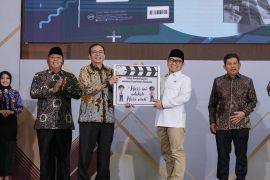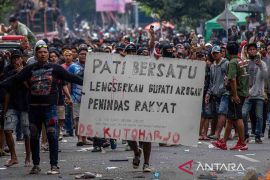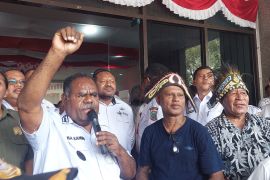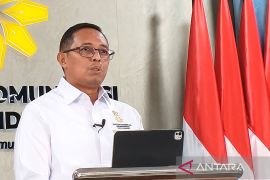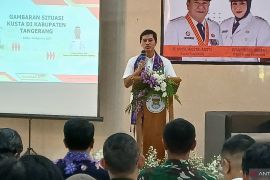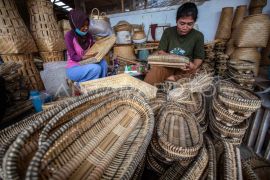DOHA, Qatar and JAKARTA, Indonesia, Dec. 2, 2012 (ANTARA/Medianet International-AsiaNet) --
NGO: Green misuse of 'prior consent' on land use will limit economic growth in developing countries
Pro-development NGO World Growth has warned against a campaign by groups such as Greenpeace and Rainforest Action Network to require prior consent by local people for forestry and agriculture projects that generate greenhouse emissions. The NGO says the campaign is a ruse to ensure that international climate change policies will limit economic growth.
World Growth's new report -- Who Decides: Community Consent and Land Use -- examines recent demands by Green groups for the "Free Prior and Informed Consent" (FPIC) of local people as a precondition for land developments. It includes a case study of Indonesia where land disputes are common because of overlapping laws.
"Greenpeace and Rainforest Action Network are now demanding that FPIC also be a condition for actions by developing countries to reduce emissions. This report shows FPIC is being used as a political tool to stymie development," said World Growth Chairman Ambassador Alan Oxley.
"Free, prior and informed consent' (FPIC) has become a campaign goal of environmental campaigners in recent years. The FPIC narrative for environmental campaigners is simple: the private sector is engaging in projects that adversely impact on local communities and the solution is to ensure local people exercise FPIC before large-scale projects commence.
"FPIC was originally intended to apply to arrangements between governments and indigenous groups based on their customs. Environmental campaign activists such as Greenpeace and WWF have taken FPIC In a different direction. They want FPIC to apply to all resource projects, not only for indigenous groups, but also all "affected" communities. This is not about supporting indigenous rights, but about stopping development altogether."
"A number of Western Green campaign groups have seized upon land disputes in Sumatra, exploiting them to protest against private sector investments in agriculture and forestry."
"In the past two years there have been a number of high-profile land-conflict cases that have led to injuries and fatalities. Sensationalist claims such as beheadings were even reported to the media, and later found to be false."
"Research shows Indonesia already has both legal and regulatory mechanisms for dealing with land disputes. Western activists have ignored this and instead demanded that customary landowners should have the right of "free, prior and informed consent." (FPIC).
"Applying FPIC beyond indigenous groups can potentially undermine the rule of law. The implication of the Greenpeace-WWF model is that established land tenure and property rights within legal frameworks should be disregarded, and made subordinate to an over-arching concept of FPIC that would sit over the top of existing legal frameworks.
"This would seem to have more to do with halting development projects altogether by disrupting operations and increasing perceptions of risks associated with these projects."
Read the report at: http://worldgrowth.org/site/wp-content/uploads/2012/11/FPIC_DEC12_web_sm.pdf
To contact World Growth's experts email:
info@worldgrowth.org or
phone +61 3 9614 8022
SOURCE: World Growth
Editor: PR Wire
Copyright © ANTARA 2012
